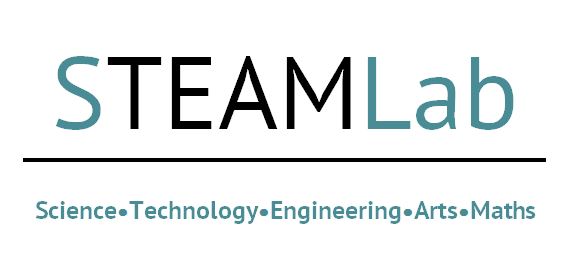
On Thursday 25th January 2018, BU’s Research and Knowledge Exchange Office (RKEO) will be hosting a Food STEAMLab.
Which means…?
We’re seeking to come up with novel research which addresses challenges in the future of food. With increasing pressure on food sources and the food industry, we need to consider how food security can be guaranteed for the future. Potential areas to address this challenge may include but are not limited to, malnutrition/nutrition, agriculture, logistics, robotics, supply chain, new forms of food, sustainability, political/economic problems, food policy, food waste & recycling, and climate & the environment.
So, who should attend?
STEAMLabs cover broad themes to ensure that they are open to everyone from all disciplines. So if you think you have something to contribute then come along. If you think that they don’t include you then please have a chat with your RKEO Facilitator who can explain how your research could make a vital contribution to new ideas and approaches. In order to encourage wider partnerships, each STEAMLab will include academics from other universities, as well as representatives from industry and other sectors.
What do I need to prepare in advance? What will the STEAMLab entail?
Absolutely nothing in advance. During the session, you’ll be guided through a process which results in the development of research ideas. The process facilitates creativity, potentially leading to innovative and interdisciplinary research ideas. These ideas will be explored with other attendees, and further developed based on the feedback received.
What if I don’t have time to think about ideas in advance?
You don’t need to do this but it will help. Attendees will come from a range of backgrounds so we expect that there will be lively conversations resulting from these different perspectives.
What about afterwards? Do I need to go away and do loads of work?
Well… that depends! The interactive day will result in some novel research ideas. Some of these may be progressed immediately; others might need more time to develop. You may find common ground with other attendees which you choose to take forward in other ways, such as writing a paper or applying for research funding. Your Research Facilitator will be on hand to support you as you develop bids for funding.
What if my topic area is really specific, and doesn’t really relate to food?
Your contribution will be very welcome! One of the main benefits of this type of event is to bring together individuals with a range of backgrounds and specialisms who are able to see things just that bit differently to one another.
So, is this just networking?
Definitely not! It is a facilitated session with the primary intention of developing innovative research ideas, which also enables the development of networks. It gives you the opportunity to explore research ideas which you may develop over time, together with the chance to find common ground with academics from across BU and beyond.
How do I book onto this event?
To take part in this exciting opportunity, BU staff should request a place by emailing RKEDevFramework as soon as possible to avoid disappointment.
This event will be held in the EBC, Lansdowne Campus.
If you have any queries prior to submitting your application, please contact Lisa Gale-Andrews, RKEO Research Facilitator.
This event is part of the Research Knowledge Exchange Development Framework.
 The BBSRCs Global Food Security (GFS) programme invites expressions of interest from post-doctoral researchers to take part in a Policy Lab on the determinants of food choice (e.g. biological, social, environmental, physical and economic) and the combination of interventions across these that will lead to healthier and more sustainable diets. Policy Labs bring together early career researchers from different disciplines to scope a policy-relevant issue, with teams forming at the workshop and then competing to write a synthesis report. The winning team at the workshop will receive a £5,000 Policy Lab award to write a policy-facing report.
The BBSRCs Global Food Security (GFS) programme invites expressions of interest from post-doctoral researchers to take part in a Policy Lab on the determinants of food choice (e.g. biological, social, environmental, physical and economic) and the combination of interventions across these that will lead to healthier and more sustainable diets. Policy Labs bring together early career researchers from different disciplines to scope a policy-relevant issue, with teams forming at the workshop and then competing to write a synthesis report. The winning team at the workshop will receive a £5,000 Policy Lab award to write a policy-facing report. NERC
NERC 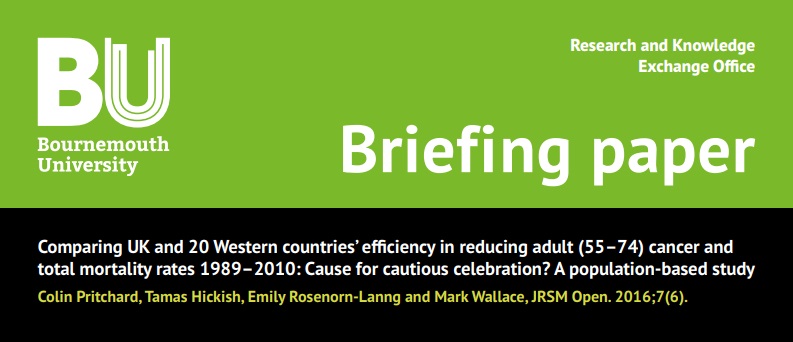 Our
Our  EPSRC is holding a two-day
EPSRC is holding a two-day 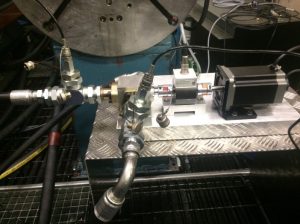 Hydreco Hydraulics is sponsoring and supporting two PhD projects from BU’s Department of Design and Engineering, in the Faculty of Science and Technology. One project involves the design and provision of the mechanical parts, while the other project involves the provision of the control systems. The company has just started testing the first prototype valve and its control system algorithm. The aims of the planned tests are to study the performance of the valve, compare it to the simulation predictions, and to identify its mechanical characteristics needed to fine tune the control algorithms.
Hydreco Hydraulics is sponsoring and supporting two PhD projects from BU’s Department of Design and Engineering, in the Faculty of Science and Technology. One project involves the design and provision of the mechanical parts, while the other project involves the provision of the control systems. The company has just started testing the first prototype valve and its control system algorithm. The aims of the planned tests are to study the performance of the valve, compare it to the simulation predictions, and to identify its mechanical characteristics needed to fine tune the control algorithms.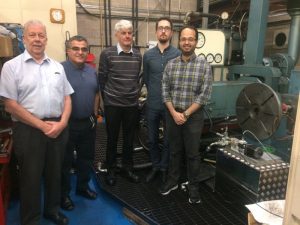 Mr Philip Godfrey and
Mr Philip Godfrey and 
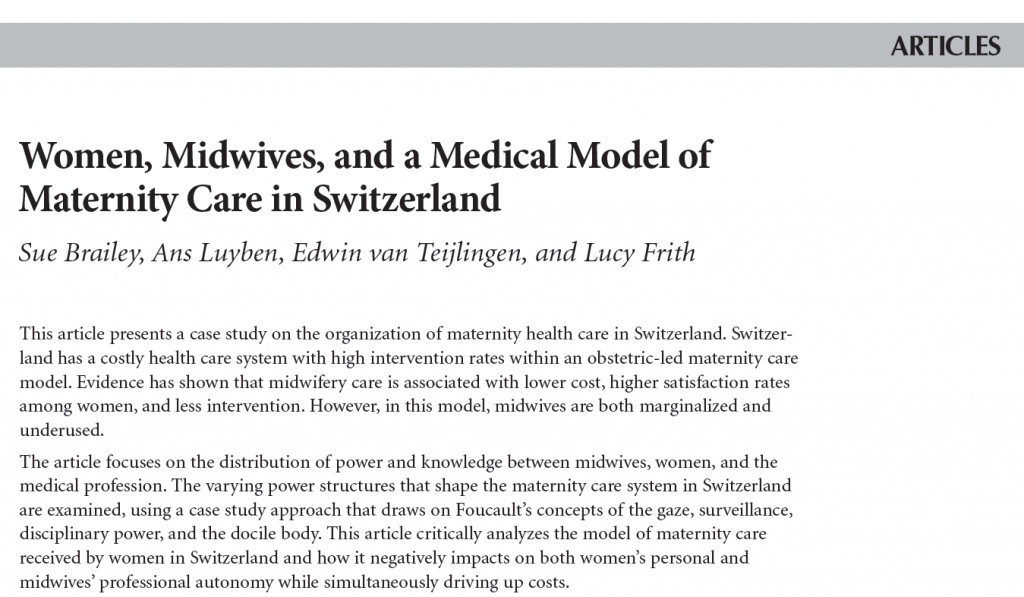



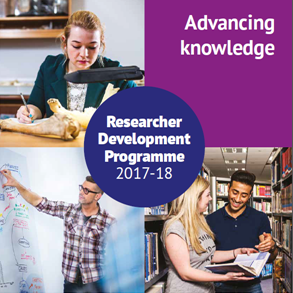

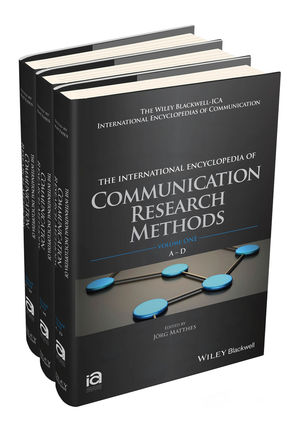 The first Chapter, “Performative Social Science”, in J. P. Matthes, C. S. Davis, & R. F. Potter (Eds.), The International Encyclopedia of Communication Research Methods, rehearses the development of Performative Social Science (PSS) as a research approach and method, developed over ten years at Bournemouth University through publication, film, research, workshops, Masterclasses, and PhD studies. Jones explains that PSS is not simply ‘art for art’s sake’ instead of research. PSS is research and dissemination practices based in the philosophy of Relational Aesthetics and has much in common with Social Constructionism. The ‘audience’ or reader/viewer are key to PSS, as is the wider community.
The first Chapter, “Performative Social Science”, in J. P. Matthes, C. S. Davis, & R. F. Potter (Eds.), The International Encyclopedia of Communication Research Methods, rehearses the development of Performative Social Science (PSS) as a research approach and method, developed over ten years at Bournemouth University through publication, film, research, workshops, Masterclasses, and PhD studies. Jones explains that PSS is not simply ‘art for art’s sake’ instead of research. PSS is research and dissemination practices based in the philosophy of Relational Aesthetics and has much in common with Social Constructionism. The ‘audience’ or reader/viewer are key to PSS, as is the wider community.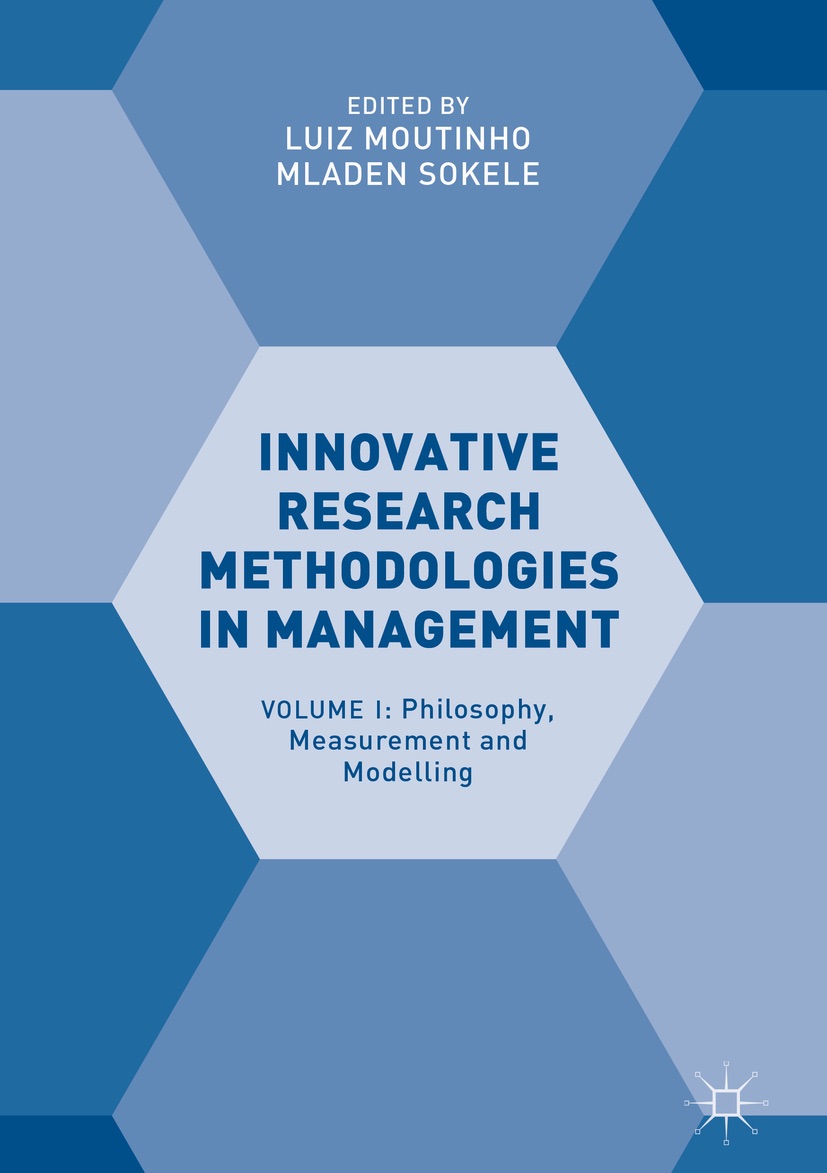 The second Chapter, “Emotivity and Ephemera Research”, in Innovative Research Methodologies in Management: Volume I, edited by L. Moutinho and M. Sokelem provides an in-depth worked example of PSS. The Chapter reports on a two-day experimental workshop in arts-led interviewing technique using ephemera to illicit life stories and then reporting narrative accounts back using creative means of presentation. The workshop took place at Bournemouth and participants were all University faculty members. A key to the process was in replicating what research participants may be feeling and going through when they share very personal stories with researchers. The exercise built a respect for this process by acknowledging that fact through the personal experiences and emotive connectivity of workshop participants.
The second Chapter, “Emotivity and Ephemera Research”, in Innovative Research Methodologies in Management: Volume I, edited by L. Moutinho and M. Sokelem provides an in-depth worked example of PSS. The Chapter reports on a two-day experimental workshop in arts-led interviewing technique using ephemera to illicit life stories and then reporting narrative accounts back using creative means of presentation. The workshop took place at Bournemouth and participants were all University faculty members. A key to the process was in replicating what research participants may be feeling and going through when they share very personal stories with researchers. The exercise built a respect for this process by acknowledging that fact through the personal experiences and emotive connectivity of workshop participants.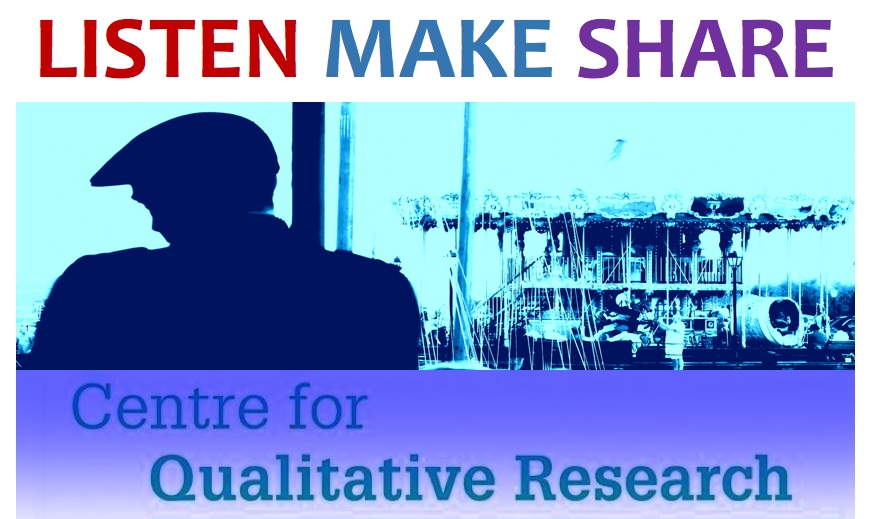 “Phenomenology or Narrative Method? Choosing one for my study”
“Phenomenology or Narrative Method? Choosing one for my study”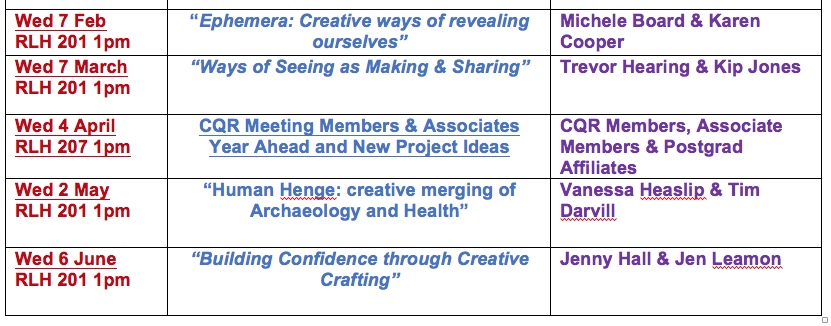
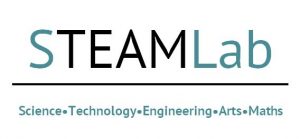


 As part of the
As part of the 












 Read and sign up to BU’s Policy Influence Digest
Read and sign up to BU’s Policy Influence Digest Upcoming opportunities for PGRs – collaborate externally
Upcoming opportunities for PGRs – collaborate externally BU involved in new MRF dissemination grant
BU involved in new MRF dissemination grant New COVID-19 publication
New COVID-19 publication MSCA Postdoctoral Fellowships 2024
MSCA Postdoctoral Fellowships 2024 Horizon Europe News – December 2023
Horizon Europe News – December 2023